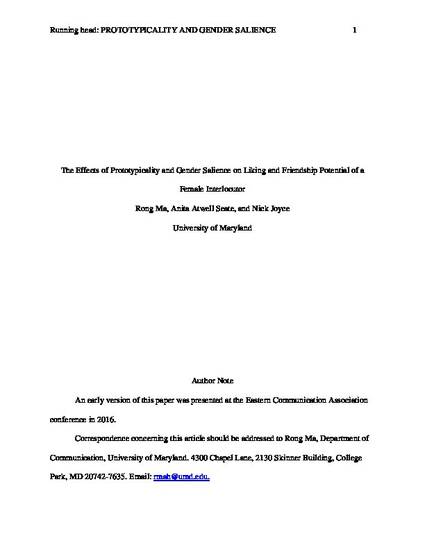
Drawing on self-categorization theory, this article examines the indirect effects of gender salience and prototypicality on friendship potential through increasing liking of a female interlocutor. We manipulated biographies of the fictitious interlocutor to change perceptions of prototypicality. For women, gender salience interacted with prototypicality to directly predict liking and the desire to become friends with the interlocutor indirectly through liking. Specifically, there was an interaction between prototypicality and gender salience, such that as gender salience increased, the prototypical interlocutor was liked significantly more and had higher friendship potential. For men, the same relationships did not appear. We discuss the implications of our study as well as directions for future research on intragroup communication and intergroup contexts with regard to power asymmetry.
Available at: http://works.bepress.com/rong-ma/8/
